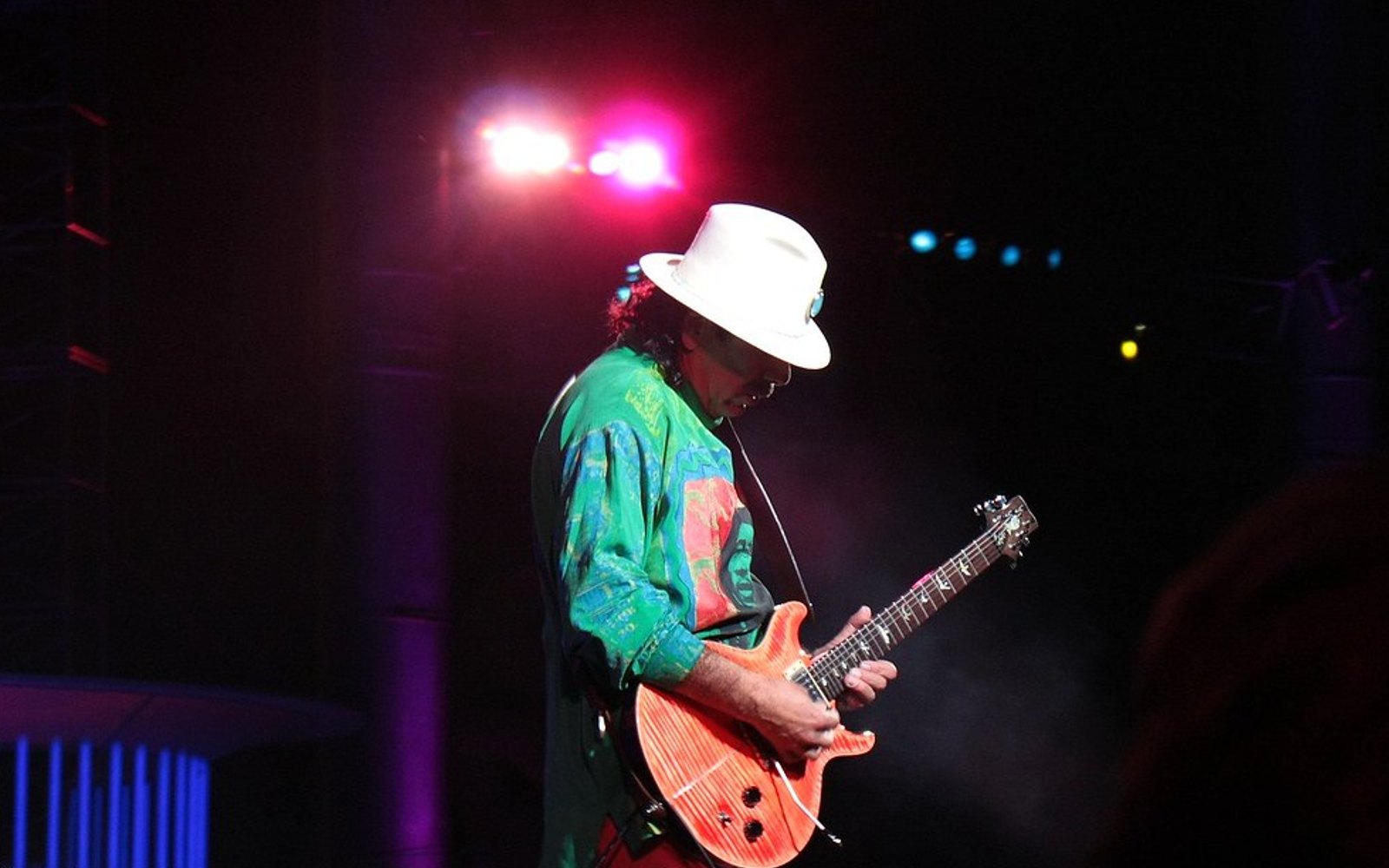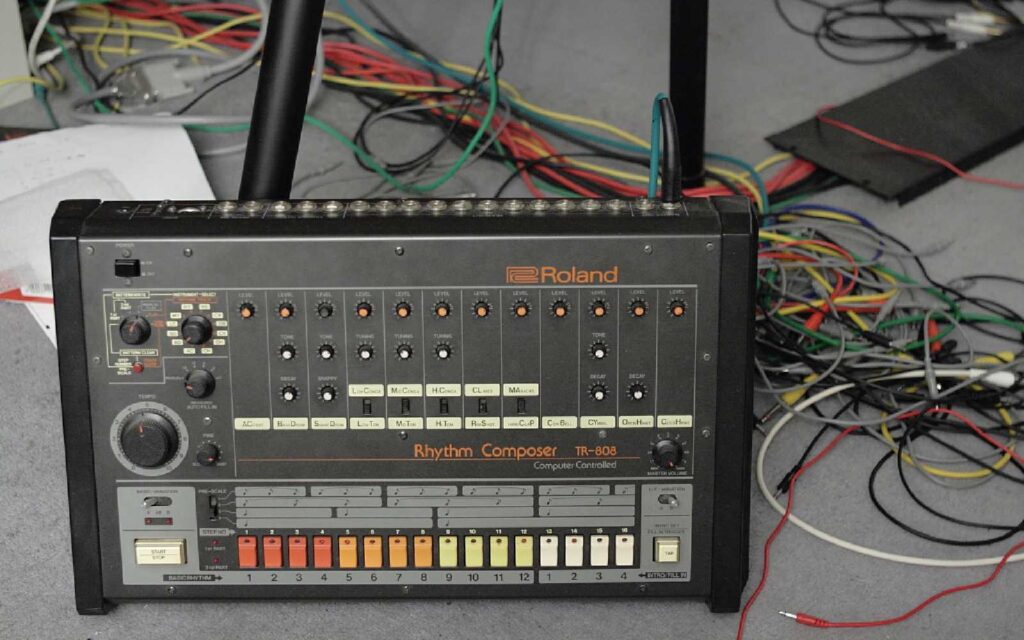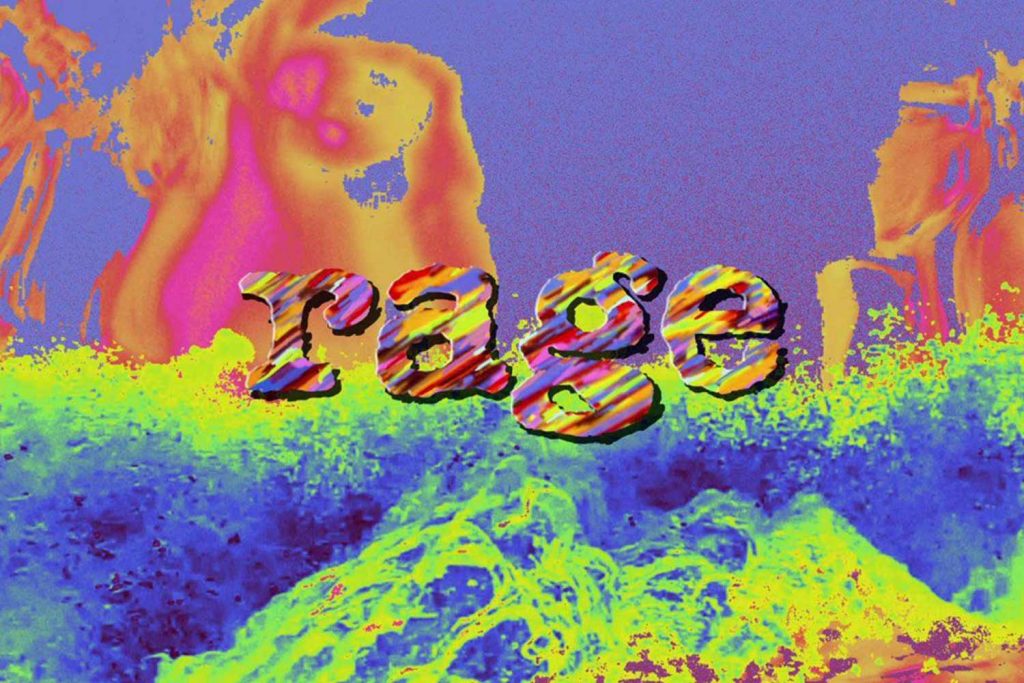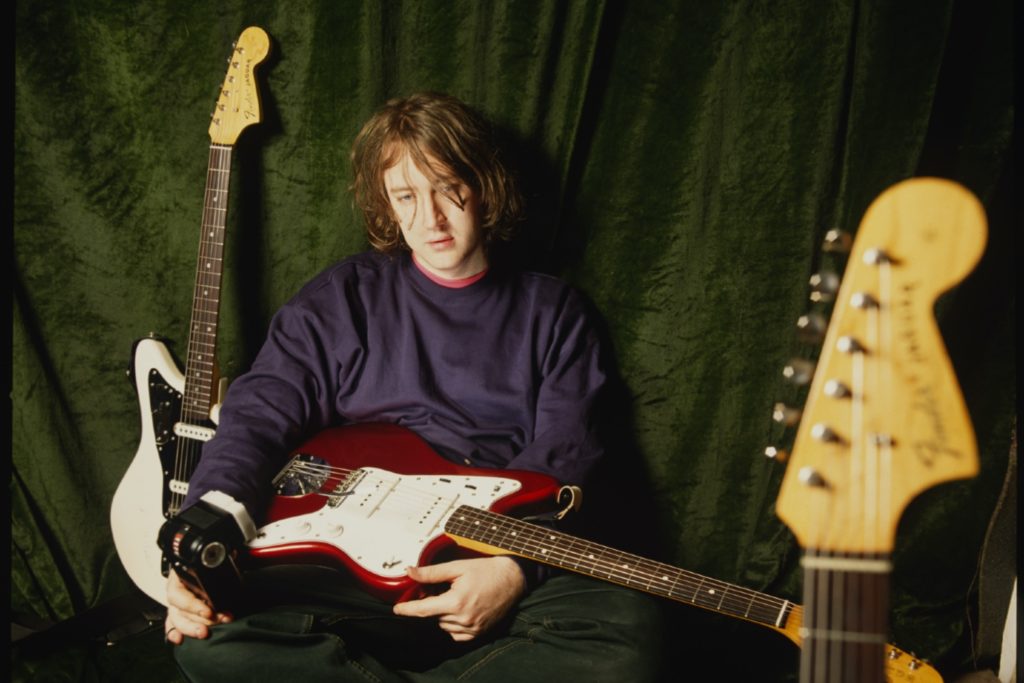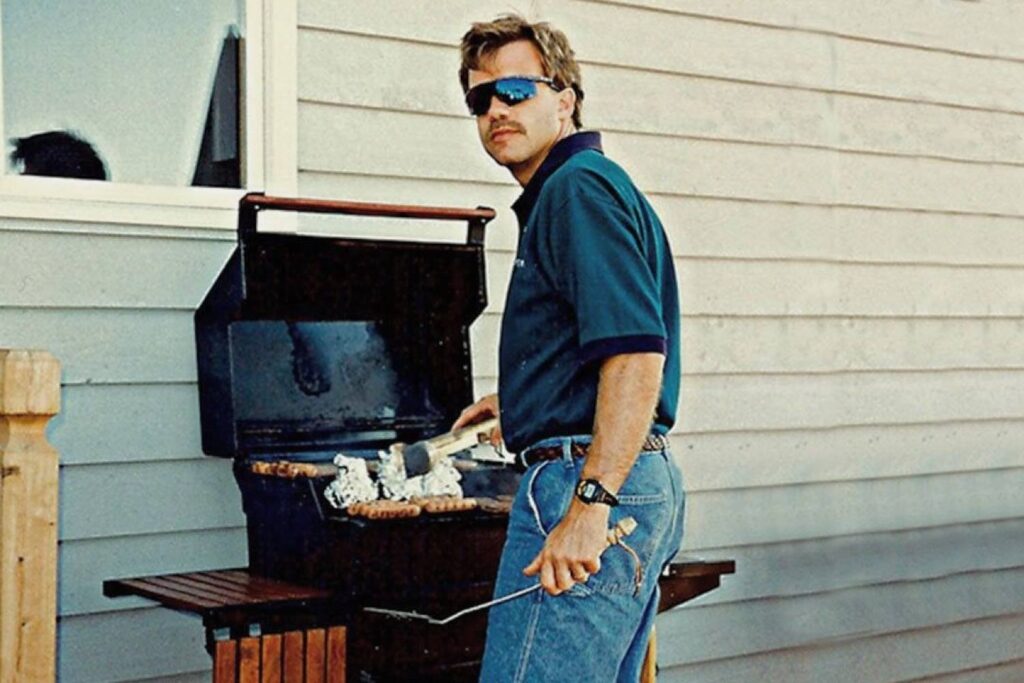Formed in 1966 by Mexican guitarist Carlos Santana, his namesake group can be credited with exposing a wide audience to the sounds of traditional Latin American music.
Their use of salsa and mambo-style percussion, paired with insane guitar skills from the man Carlos Santana himself made them a force to be reckoned with—releasing over 25 studio albums, and selling over 47 million. Today we take a dive into 10 of their most popular Santana songs from over the years.
“Maria Maria” feat. The Product G&B (1999)
Seamlessly blending elements of hip hop with soulful vocals, this hit featured the Product G&B and sampled the drum beat from the Headhunters’ “God Made Me Funky”, while also incorporating the main melody from “Wu-Tang Clan Ain’t Nuthing ta Fuck Wit”.
Releasing on September 14, 1999, “Maria Maria” reached number one in over six countries, and stayed at the top of the Billboard Hot 100 chart for ten weeks in the US.
Read all the latest features, lists and columns here.
Written and produced by Wyclef Jean and Jerry “Wonda” Duplessis, and the pair began working on the track with Santana while Jean’s previous group (hip hop trio Fugees) were on tour in San Francisco.
Jean reached out to the Product G&B for vocals and would later add the duo to his own record label, Yclef.
“Maria Maria” would be later sampled by DJ Khaled in 2017 on his hit “Wild Thoughts”, featuring Rihanna and Bryson Tiller.
“Oye Como Va” (1970)
Originally written and recorded by Tito Puente as “Oye Cómo Va”- a cha-cha-chá song released in 1962, Santana would put their spin on it eight years later.
Puente’s version was arranged with repetitive piano tumbao, a vocal refrain sung by a chorus in typical of cha-cha-chá fashion, and featured an array of instrumentation including trumpet, sax, flute and violin.
Santana opted to go a different route, dropping Puente’s brass section, playing the flute melody on an electric guitar (of course), and utilising a Hammond B-3 Organ and a driving rock drum kit to tie it all together.
Puente explained in an interview that he was initially outraged when he found out his song had been covered by a rock band… that was until he received his first royalty check.
In 2001, Santana’s version was inducted into the Latin Grammy Hall of Fame, and the Grammy Hall of Fame the following year, and in 2021 came in at number 479 on Rolling Stone’s “500 Greatest Songs of All Time.”
“Just Feel Better” feat. Steven Tyler (2005)
In 2005, Aerosmith front man Steve Tyler teamed up with Santana on the first single off their twentieth studio album All That I Am.
One of our favourite Santana songs, “Just Feel Better” was written by Jamie Houston- an Emmy nominated songwriter best known for his work on High School Musical, Buck Johnson, who played keys for the likes of Ringo Starr and The Doobie Brothers, and Damon Johnson; Lynyrd Skynyrd guitarist and co-founder of Brother Cane.
Despite these credits though, the song never achieved much international success, and was regarded as a rather basic rock song.
The reception was pretty good here in Australia though, debuting at number eight on the ARIA music charts and receiving substantial airplay.
A version of the song sung by Puddle of Mudd’s Wes Scantlin was also recorded, but it’s reported that Carlos preferred Tyler’s more emotionally driven version.
“Soul Sacrifice” (1969)
It’s impossible to talk about “Soul Sacrifice” without referencing the iconic performance at Woodstock ‘69, regarded by many as one of the most uniting sets of the festival, and one that certainly put Santana on the map at the time.
One of the group’s earliest compositions, the song features a combination of “old-world guaguanco rhythms and strictly American licks” and is led by the heavy back and forth between Carlos and Gregg Rolie on keys.
“The Game of Love” feat. Michelle Branch (2002)
This team up with American singer/ songwriter Michelle Branch released as a single from their 19th studio album Shaman (2002) and debuted in September of that year- winning a Grammy for ‘Best Pop Collaboration with Vocals.’
Originally recorded with Gregg Alexander of New Radicals, producer Clive Davis instead opting for a female voice to carry the song’s overall message.
The Game of Love went through several versions with Tina Turner and Macy Gray at the forefront, before Davis settled on Branch.
The Tina Turner version can be found on 2007 compilation Ultimate Santana.
“Evil Ways” (1969)
Covers still count as Santana songs right?! Recorded originally by Willie Bobo in 1965; “Evil Ways” was written by Bobo’s guitarist, Clarence “Sonny” Henry for the 1967 album Bobo Motion.
Bobo’s use of Latin percussion was a large influence on Santana, playing a big part in a lot of their tracks from that late ’70s period, Carlos stating in an interview that he was one of the first to infuse Latin music with blues on record.
Released as a single in ‘69, Evil Ways became Santana’s first top 40 and top 10 hit in the United States peaking at #9 on the Billboard Hot 100.
Gregg Rolie once again makes great use of that Hammond B-3, performing an iconic organ solo in the middle section.
“Smooth” feat. Rob Thomas (1999)
Man, it’s a hot one…
Santana’s collaboration with Matchbox Twenty front man Rob Thomas may have been a bit of a strange pairing at the time, combining signature Latin rock elements with devotional love lyrics.
Well, say what you will but what resulted was a summer hit- Smooth going on to become the second biggest-selling single of all time, after Chubby Checker’s “The Twist.”
The idea for the track was originally conceived by American composer Itaal Shur, titled “Room 17”, but producers weren’t a fan and decided to strip the lyrics and hand the reigns over to Thomas- he rewrote it and Smooth was born.
“Why Don’t You & I” (2003)
Originally written by Nickelback frontman Chad Kroeger, this single from 2002’s Shaman was re-recorded the following year with vocals by Alex Band from The Calling.
Both versions charted in the US, with the Alex Band version peaking at number 21 in New Zealand.
When Arista records wanted to release Kroeger’s version in 2003, Nickelback’s label Roadrunner records flat out refused- believing that his appearance would hinder the sales and overall hype around their album The Long Road releasing in fall.
Kroeger recommended Alex Band for the single release, and to this day it remains Santana’s last single to appear in the US top 10 charts.
“Everybody’s Everything (1971)
Written by Carlos and performed vocally by Gregg Rolie, ‘Everybody’s Everything’ was the first single from the Santana III album, and was a hit, reaching the 12th spot in the US charts.
The groove of the track was borrowed from an obscure soul tune from the late 60s, and the song is more rnb focused than some of their other work.
The appearance of the horn section from Oakland group Tower of Power marked the first time Santana had used guest musicians and was just the second time Tower of Power had farmed out their horns to another band, something they would do a lot more over the next 50 plus years.
A 17-year-old Neal Schon makes his debut here also, leading the guitar solo, and just a few years later he and Rolie would leave Santana to form the band Journey.
“Black Magic Woman” (1970)
Written by none other than Fleetwood Mac back in 1968 (when they were still a British blues band) by Peter Green, ‘Black Magic Woman’ is one of those Santana songs that was heavily influenced by Otis Rush’s ‘All Your Love’ which had been recorded two years earlier by Green’s former band, John Mayall & the Bluesbreakers – with Clapton on lead guitar.
Santana’s version was recorded two years later and is a medley with Gábor Szabó’s “Gypsy Queen” from 1966, fusing Latin rhythms with jazz and Hungarian folk.
It spent a total of 13 weeks on the Billboard Hot 100 chart and peaked at number four in 1971; their highest-peaking Hot 100 hit since the aforementioned “Smooth”.
Santana’s 1970 album, Abraxas, reached no. 1 on the charts and hit quadruple platinum in 1986, and the success of “Black Magic Woman” played a huge part in this.
Keep up with the man himself, Carlos Santana, here.
